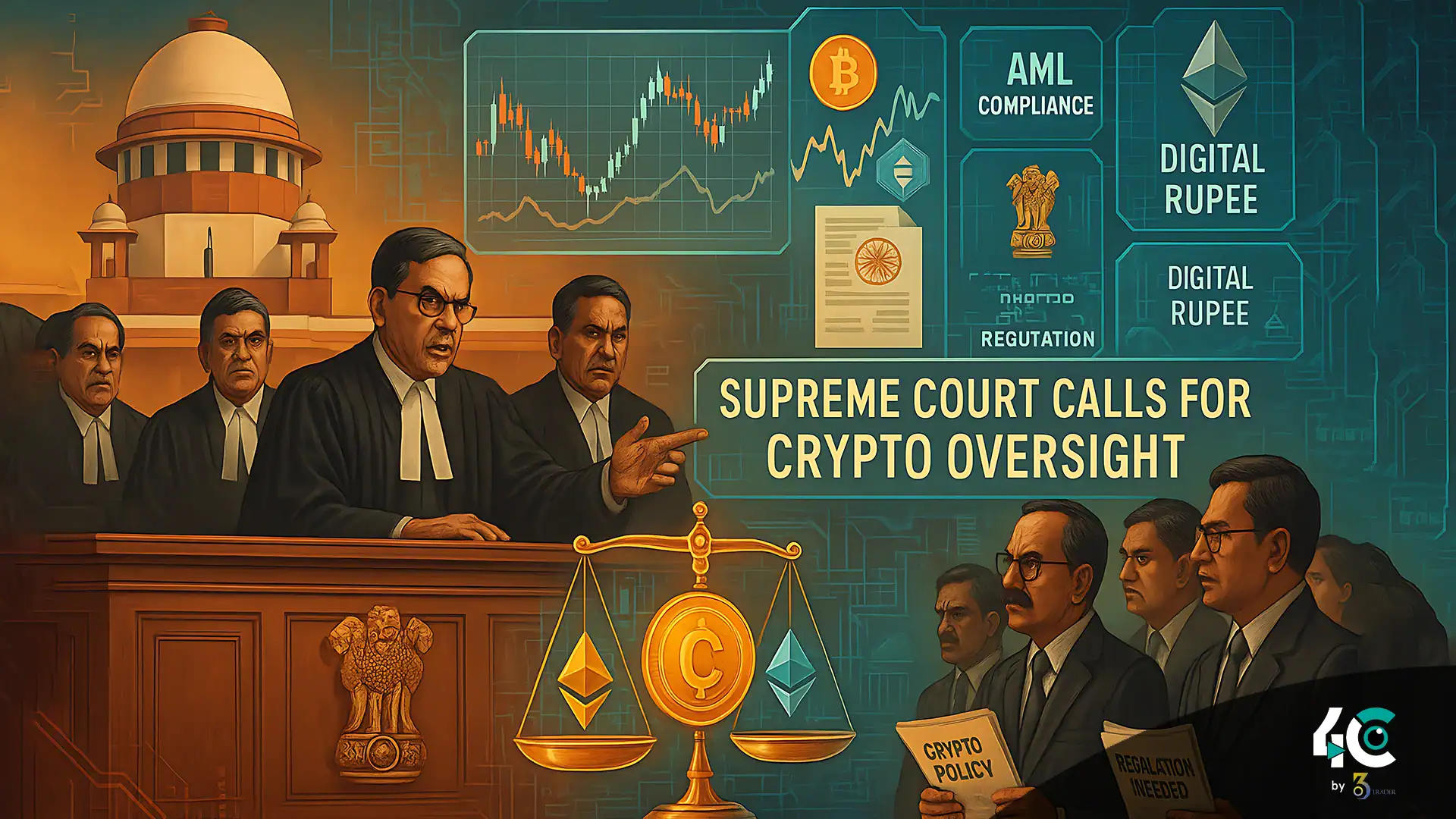Court Questions Crypto Taxation Without Regulation
India’s Supreme Court has raised serious concerns over the lack of a proper regulatory framework for cryptocurrency in the country. In a recent bail hearing, the court criticized the government for taxing crypto transactions without establishing any legal structure to monitor or control them.
The bench, comprising Justices Surya Kant and Kotiswar Singh, noted that Bitcoin transactions are a more sophisticated version of hawala, referencing a case involving Shailesh Babulal Bhatt—a Gujarat resident accused of running fraudulent Bitcoin schemes across several states.
Contradictions in Government Policy
Justice Kant pointed to a contradiction in the government’s approach: “If you recognize it by taxing it at 30%, then you must also regulate it. There’s a parallel crypto economy, which is unregulated and that’s a big threat to India’s banking system.”
The apex court has previously asked the Centre for clarity on digital currencies. Nearly two years later, there is still no dedicated legislation to govern them.
Legal Gray Areas and Enforcement Gaps
The Additional Solicitor General representing the government asked for more time, but the court emphasized that banning cryptocurrencies isn’t a viable solution, especially when digital finance is gaining global momentum. The bench stated that crypto trading is legal unless explicitly banned—meaning regulation is the only sustainable option.
The court also questioned how law enforcement agencies are expected to deal with crypto-related fraud, given there are no legal definitions or valuation methods for these digital assets. Justice Kant noted the price volatility of Bitcoin, adding, “When a Bitcoin is worth lakhs today and almost nothing tomorrow, it strengthens the need for regulation.”
India’s Taxation but Not Regulation Approach
Since 2022, India has been taxing crypto income at a steep 30% on capital gains and 1% TDS on transactions, classifying it as a speculative asset. However, these taxes were introduced without legal recognition or a supporting regulatory body.
Disagreements between regulators like the Reserve Bank of India (RBI) and the Securities and Exchange Board of India (SEBI) continue to delay progress on comprehensive crypto rules.
Future of Indian Crypto Regulation
With growing interest among tech-savvy employees and rising abuse cases, pressure is mounting for the government to act. The Supreme Court’s intervention may accelerate policy decisions. As digital finance continues to evolve, India’s delay in regulation may soon become untenable.



























